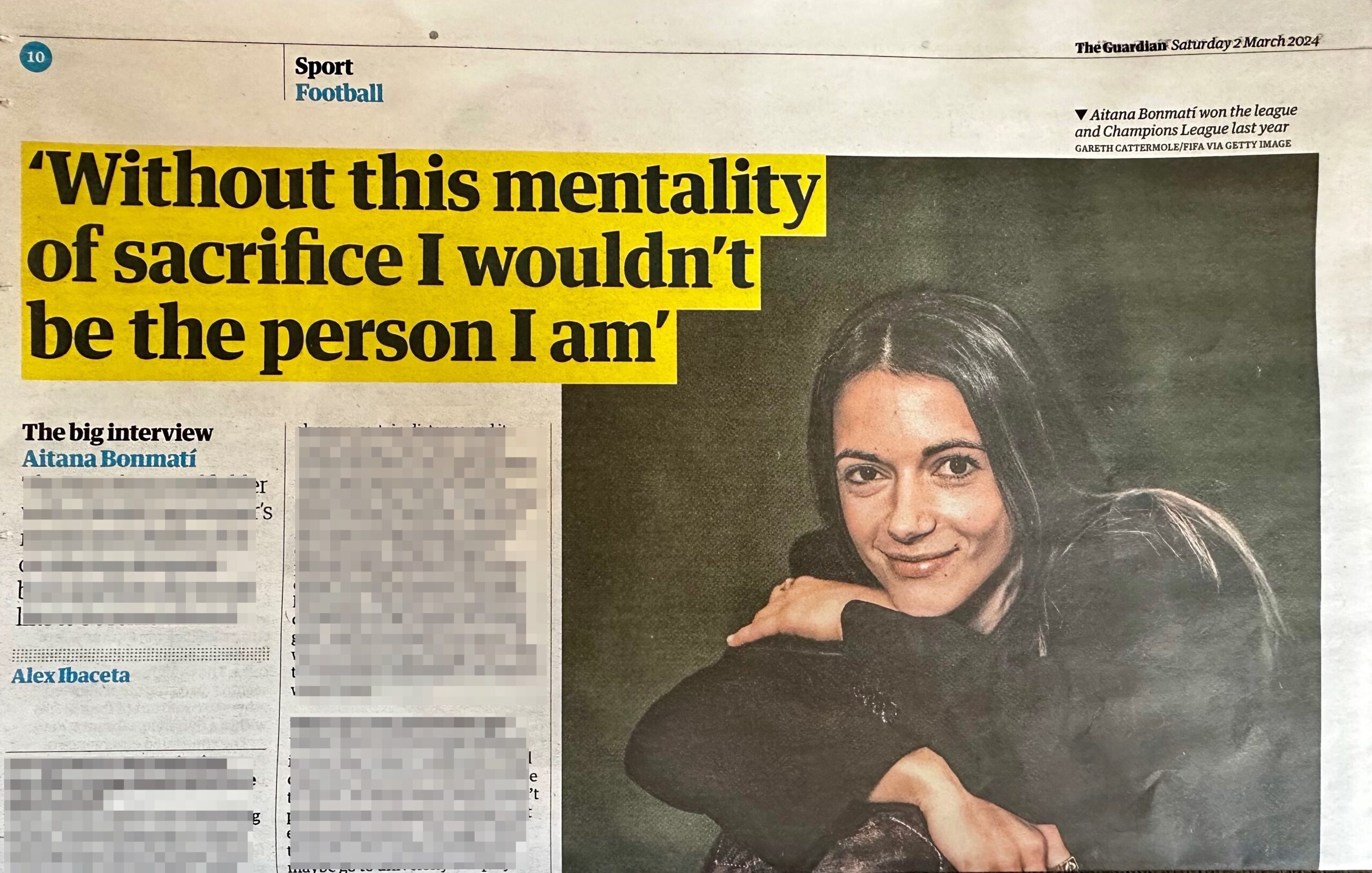How and why struggle, sacrifice and hard work = success
Over this past weekend, I read an interview in the Guardian that sparked a lot of thoughts. The interview [here] was with Aitana Bonmatí, a Spanish female footballer, playing for Barcelona, Ballon d’Or, Champions League champion, and a World Cup winner. In the interview, reported by Alex Ibaceta, Bonmatí recounts her journey and some of the challenges she faced. I’m generally not one to vaunt the merits of football, but here is a bona fide instance of an individual with solid values, an inspirational outlook and exceptional results. The way Bonmatí spoke of her path to success, it was litered with opportunities to cry victim or foul. She chose to be the actor of her life.
I picked up a few of the more powerful sentences:
“What has characterised me has been my mentality… Talent is one thing, and you can work hard as well, but without this mentality of sacrifice, fight and to want to be better every day… I wouldn’t be the person I am today.”

“The journey isn’t pretty, but you have to accept that those [bad] moments have to exist to keep improving and know you have to get better. And take on difficulties as opportunities instead of putting your head and saying: ‘I’ve had enough.’ “
Bonmatí’s sense of sacrifice is tangible. The fact of the matter is that you need to experience hardship and challenge in order to build resilience. You need to embody that experience. You can’t talk yourself into resilience any more than you can predict you’ll be able to sustain extreme pain if you’ve never had to before. Pain is possibly the most robust test of our consciousness. From the medic who exacts pain to gauge whether an individual is conscious, to the sense of pain one feels that makes us aware of our body, pain is a vector of many things, including growth. In a world where the precautionary principle has taken hold of so many quarters of our lives, we seem too keen to shun from anything leading up to pain.
There are two facets of the interview that intrigued me. First, I want to highlight the driving force of ambition. Her hunger to succeed has been powerful. Her parents presumably gave her a hand early on, but it seems that she fully owned her own sense of who she wanted to be. Despite all her success, she continues to be driven for more. She says:
“The day I don’t have that hunger and ambition is the day I’ll retire from professional football.”
Finally, despite her young age (she’s just 26), her words of those of a wise person:
“I want to be remembered as a great footballer but also someone who had values off the pitch and tried to make changes on a social level, so names of women’s footballers are able to reach to more homes.”
In a society that shuns pain, paper over our imperfections, and revels in convenience, it’s refreshing to see how sacrifice, hardship and challenge have contributed to her success. She has an acute awareness of her responsibility to influence others, to the point of already knowing what kind of legacy she wants to leave. Personally, I’d relish the chance to meet and talk deeply with Aitana. And that’s not something I’d say about the vast majority of footballers. (Okay, I’d like to hang out with the current Liverpool manager, Jürgen Klopp, too).











